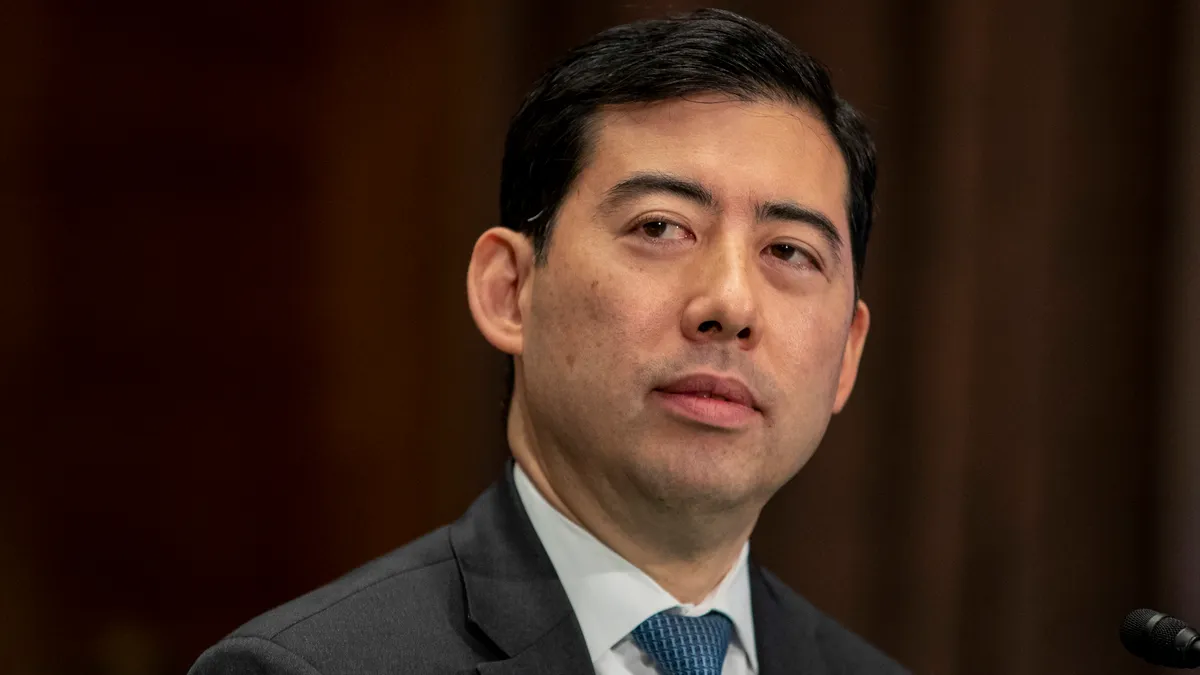General counsel can’t sit on the sidelines if an employee comes forward with a misconduct allegation now that the burden has shifted to employers to defend their actions in whistleblower cases under the U.S. Supreme Court’s Murray v. UBS Securities ruling earlier this month.
“It’s a game changer for whistleblowers,” Haynes and Boone Partner Kurt Gottschall told Legal Dive.
While whistleblowers must prove their protected reporting activity was a contributing factor in an employer’s personnel action against them – firing them or going after their severance pay, for example – the Supreme Court found the burden then shifts to employers to show they would have taken the same action in the absence of whistleblowing activity.
“In any litigation, shifting the burden of proof is a huge deal,” said Gottschall, a former chief of the Securities and Exchange Commission’s Denver office. “Murray is a shot across the bow. This will tilt the playing field in favor of employees.”
Easing the path for employees
The case involved a UBS research strategist who claimed that two trading desk leaders pressured him to skew his reports despite SEC regulations requiring him to certify that he produced his reports independently and that they accurately reflected his views.
The research strategist reported the conduct to his direct supervisor, calling it “unethical” and “illegal.” Two months later, UBS fired him.
The Second Circuit Court of Appeals overturned a $900,000 jury verdict in the whistleblower’s favor, ruling that he needed to prove the employer acted with retaliatory intent. But the Supreme Court rebuked the Second Circuit in finding there should be no such requirement.
Writing for the Court, Justice Sonia Sotomayor said the only intent required under the Sarbanes-Oxley Act – which created the SEC’s whistleblower program in 2010 – is the intent to take some adverse employment action against the whistleblowing employee “because of” their protected activity.
“Requiring a whistleblower to prove his employer’s retaliatory animus would ignore the statute’s mandatory burden-shifting framework,” Justice Sotomayor said.
Sean McKessy headed the SEC’s Office of the Whistleblower from 2011 to 2016 and now practices with Phillips & Cohen in Washington, DC, where he represents whistleblowers. According to McKessy, there would have been no protection at all for whistleblowers if the Supreme Court did not reach the result that it did.
“As a practical matter, whistleblowers would have been defanged and the law would have had zero deterrent effect [without this ruling],” said McKessy. “It’s so hard to show intentionality. You basically need someone dumb enough to put their retaliatory animus in an email.”
McKessy added, “I’ve seen some mind-boggling conduct, but I’ve yet to see them put in writing, ‘We’re firing you because you reported wrongdoing.’”
Takeaways for in-house counsel
The Murray ruling offers a host of messages for in-house counsel, but management-side attorney Joseph P. Sirbak II, of Cozen O’Connor in Philadelphia, said revising employment contracts should not be one of them.
“If an employer asked me, ‘How do we change our employment agreements?’ I don’t think you really can,” he told Legal Dive. Sirbak noted that language is built into Sarbanes-Oxley to prevent employers from contracting around the statute.
Gottschall voiced a similar sentiment. “The SEC has taken a very dim view of anything that limits an employee’s ability to report wrongdoing or prohibits disclosing confidential information to the SEC,” he said. That also holds true with severance agreements.
One message that cannot be missed is the importance of in-house counsel not sitting on the sidelines until trouble arises. “In cases where an employee has engaged in protected activity, in-house counsel will want to be involved before adverse personnel decisions are made,” said Sirbak. “Once a claim is filed, it’s too late.”
Employers must consider after they become aware of whistleblowing activity how that could be seen as a contributing factor under Murray to any future personnel action. That means having strong contemporaneous documentation in place.
“It’s going to come down to having consistent personnel actions and documenting that consistency,” said Sirbak.
Why good culture Is critical
“The fastest way to get me to represent employees is for employees to think they weren’t heard,” said McKessy. “You don’t want them to feel ignored, even if they’re wrong.”
He added that the tone at the top speaks volumes. “There are companies that say if you see something we want you to say something, but they don’t really mean it,” McKessy said.
Gottschall does not disagree. That’s why he advises companies to reevaluate their culture from “cradle-to-grave.”
“It’s so important to have a culture where employees are comfortable speaking up internally,” he said. “The employer in this case didn’t help itself.”
What’s clear is that whistleblower cases already were on the rise, making open-door policies where employees are not afraid to come forward more important than ever.
“There has been an explosion of whistleblower complaints overall because of the awards available with the SEC and more sophistication from the plaintiff’s bar,” said Gottschall.
In FY 2023, the SEC’s Whistleblower Program awarded nearly $600 million – the highest total in its history – to 68 individual whistleblowers. The totals included a single award for almost $279 million. The agency also reported receiving more than 18,000 whistleblower tips last year, up nearly 50% from 2022.
But plaintiff’s-side whistleblower attorney McKessy does not expect the Supreme Court’s ruling to necessarily create a huge groundswell of whistleblower litigation. “Psychologically, these are really hard cases to go through,” he said. “People only come to me as a last resort."


















